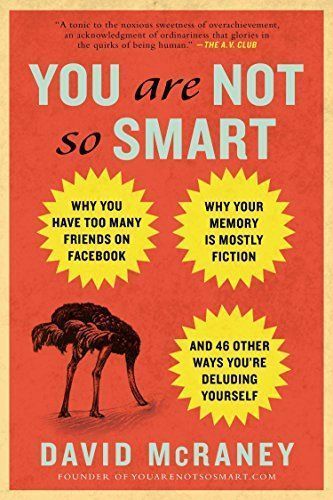
You are Not So Smart Why You Have Too Many Friends on Facebook, why Your Memory is Mostly Fiction, and 46 Other Ways You're Deluding Yourself
Explains how self-delusion is part of a person's psychological defense system, identifying common misconceptions people have on topics such as caffeine withdrawal, hindsight, and brand loyalty.
Reviews
Jun Angelo Cabuguas@junjello321
Mark Gibaud@markgibaud
Fabio Bracht@bracht
Ahmed Salem@salem309
Kuba Milcarz@kubamilcarz
Madhuri Sridhara@madhurireads
Mary Baldwin@mapetiteliseuse
Ervin Szerdocz@ervin
Adam@adam
Hannah Tierney@htreads
Adine@axixe
Taylor Murphy@tayloramurphy
Chris Jennings@ckj
Paula Alonso Ishihara@midorichan
Eric Smith@ericcommando
Ed Macovaz@edmacovaz
Aubrey Hicks@aubreyhi
Georgi Mitrev@gmitrev
Wilde@wildeaboutoscar
Timur Literal@garifzyanov_literal
manav @manavmishra
Daniel Fernández@defo89
Brandon Walowitz@bwal
David Pascuzzo@davidpascuzzo